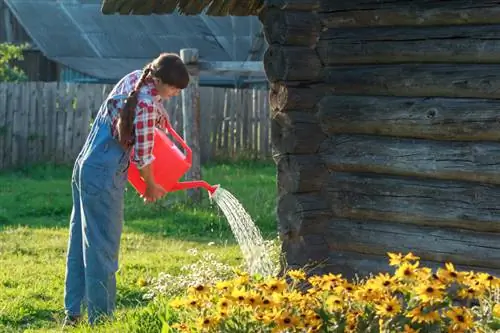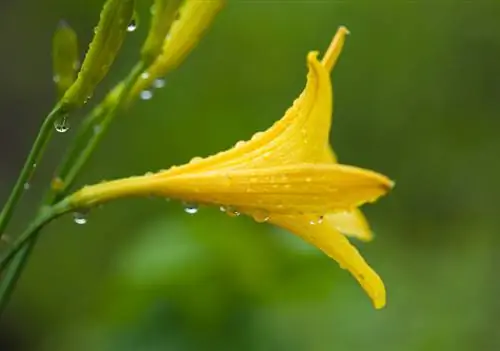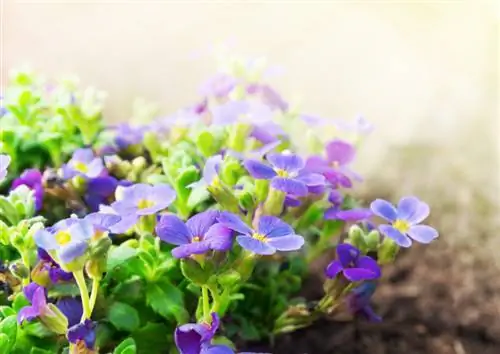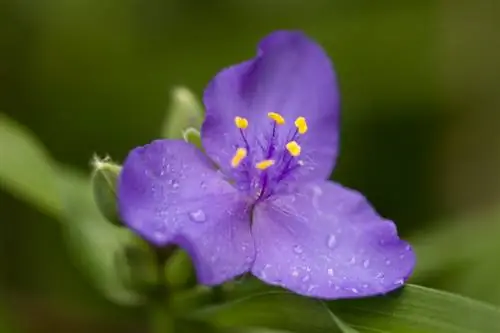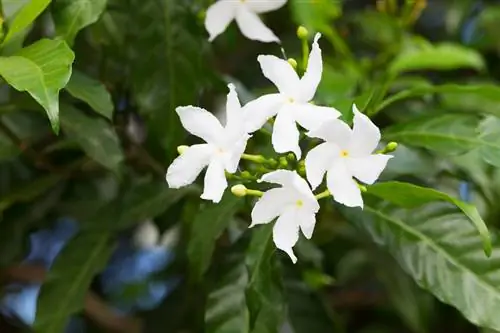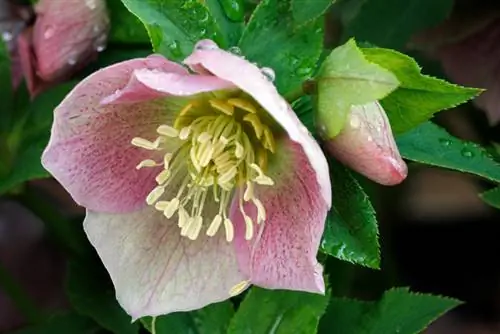- Author admin leonars@hobbygardeners.com.
- Public 2023-12-16 16:46.
- Last modified 2025-01-23 11:20.
Both yellow and red coneflowers are fairly easy to care for. During the flowering period, it is recommended to water it regularly and check for pests or diseases. Unfortunately, the coneflower is quite susceptible to mildew and small leaflets.
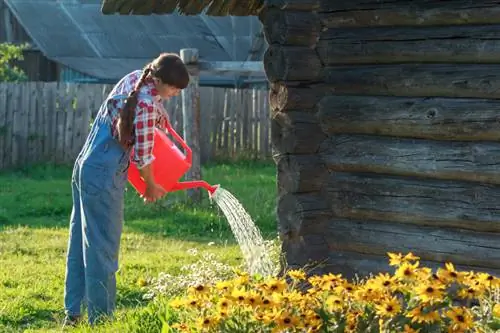
How do you care for coneflowers properly?
Coneflower care includes regular watering during flowering, at least two applications of organic fertilizer per year and a sunny, warm location. Watch out for pests and diseases such as powdery mildew or leafworm.
Water coneflower correctly
To ensure that your coneflower blooms long and profusely, you should water it regularly during the flowering period, at least when it doesn't rain. However, waterlogging must be avoided at all costs. Occasional drought is not a problem for the coneflower, but may lead to fewer flowers.
How is coneflower properly fertilized?
Since coneflower prefers nutrient-rich soil, it should be fertilized outdoors at least once a year in spring. However, it is better to fertilize in spring and autumn. Use organic fertilizer, such as well-rotted compost or horn shavings (€52.00 on Amazon). You can supply potted plants with liquid fertilizer. During flowering, your coneflower deserves an extra gift.
Diseases and pests of coneflowers
Check your coneflower regularly for pest and disease infestation, then you can react quickly in an emergency and at least prevent neighboring plants from becoming infected. Brown leaves can be a sign of leaf thinning. Discard the affected plant parts.
Mildew appears as a white coating on the leaves and flowers and occurs mainly in summer. Spraying the perennial with a mixture of nine parts water and one part whey or milk is said to help with this fungal disease. Severely infested plant parts should be disposed of; an insecticide may also be recommended.
Coneflower in winter
Coneflower is hardy and does not require any special care outdoors during the winter. Frost protection is only necessary for potted plants so that the roots do not freeze. To do this, wrap the planter with an old blanket or bubble wrap. Alternatively, overwinter these plants in the greenhouse.
The most important care tips for coneflowers:
- water regularly
- fertilize organically twice a year
- sunny and warm location
Tips & Tricks
As its name suggests, the coneflower likes it sunny and warm. In the ideal location it will bloom particularly profusely.

